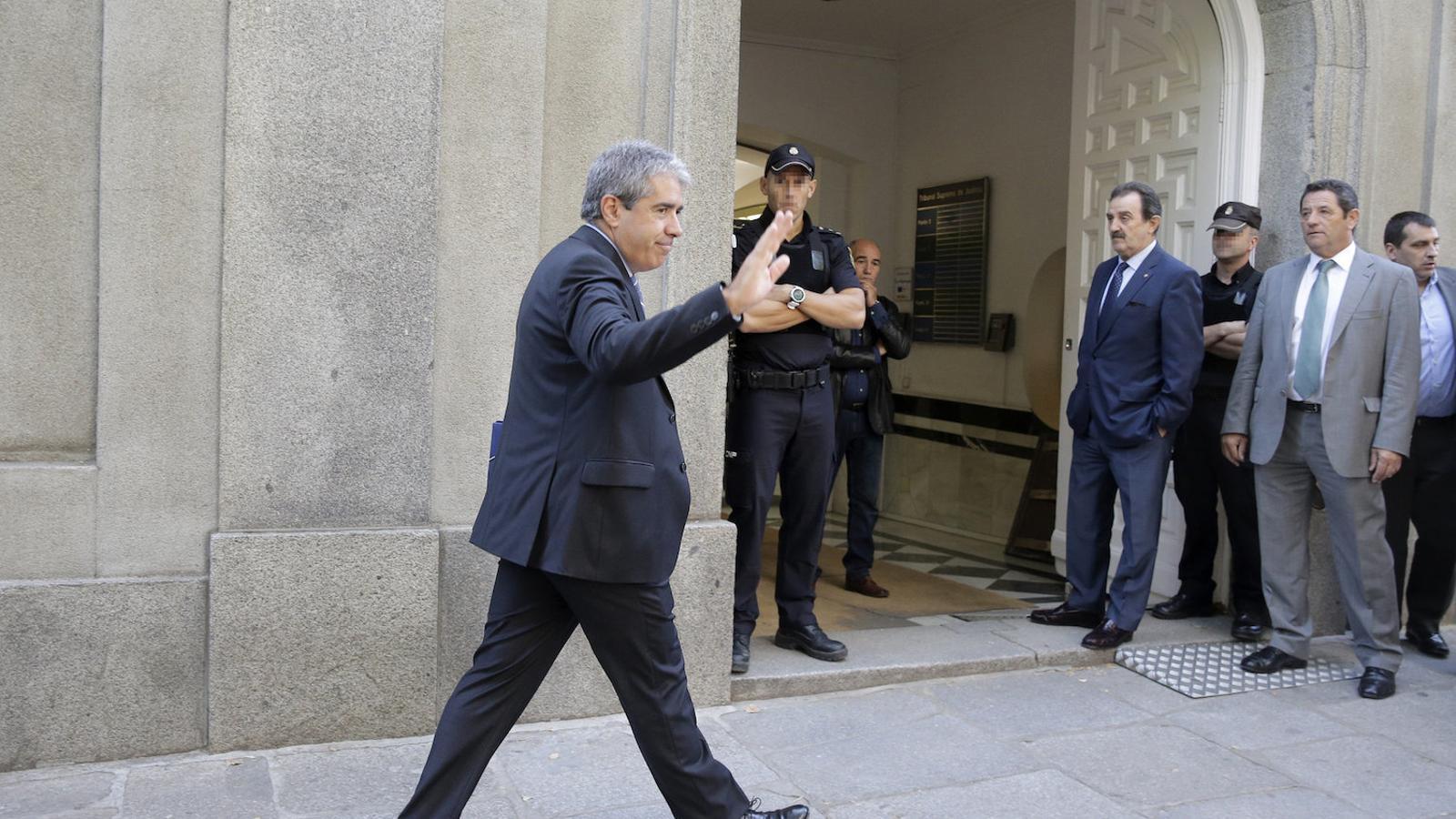The right to decide, on trial
Bringing politicians to court, banning them from holding public office and finding them guilty will achieve nothing. Others will take their place

Today’s appearance before the Supreme Court by former minister Francesc Homs, on trial for his part in the 9-N [9 November] non-binding independence vote, represents a new step forward in the Spanish state’s unyielding legal proceedings against the right to decide. The state’s refusal to enter into political negotiations, even when faced with persistent calls from the majority of Catalan citizens, increasingly leaves less room for manoeuvre: justice, under pressure from the constant demands of the government, is gradually running its course and thereby serving to further alienate Catalan society.
Prosecuting democratic representatives who are trying to give voice to the people’s will by allowing them to exercise their vote is in akin to putting the essence of democratic politics on trial. Can ideas and votes be put on trial? Voting should never be a crime. The Spanish state’s handling of the Catalan issue is weakening the courts, turning them into an inappropriate political actor; in short, it is weakening the rule of law, pitching the justice system against the people’s will as expressed through the ballot box, whether it be during 9-N, 27-S [27 September] or the referendum on the Catalan Statute, when all this began.
Obviously, the law must be obeyed, but it must also respond to reality, especially when that reality is democratic, peaceful and persistent. Bringing politicians to court, banning them from holding public office and finding them guilty will achieve nothing. Others will take their place. Millions of people voted for them and asked them to make good on their promise: that is, to let the people have a say in deciding what kind of a state they want. Within a new Catalan legal framework, if necessary. The only strategy behind the judicialisation of the issue is that of fatigue: exhausting the independence movement, causing it to split. But we have seen five years of mass demonstrations, we have a pro-independence parliament in Catalonia, yet the other side has not made the slightest gesture: in practice Catalan self-rule continues to be hindered, financially asphyxiated and linguistically always under suspicion, threatened.
Forecasts which predicted that the independence process would run out of steam have been proven wrong. And the judicialisation and negation of politics only serves to achieve the opposite of what is intended: strengthening the commitment between the public and politicians who are in favour of independence. In short, we are facing the instrumental use of justice that merely adds to a sense of injustice.
